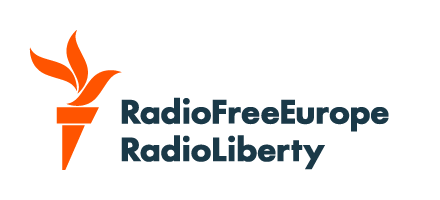Prague, 23 March 2005 (RFE/RL) -- As scientists in Belgium have found, sometimes the best things happen by accident.
A chemist working for drugs company Johnson and Johnson created a compound that was different than the one he expected.
So he stored it away in the company's so-called "chemical library." And there it stayed, until other scientists there found it had an unexpected -- and exciting -- characteristic.
Koen Andries led the research team. "It has almost all the desirable properties you can wish for to be a potentially very interesting drug to treat tuberculosis."
"When our drug was combined with some of the existing [TB] drugs, we were able to cure TB in [mice] in a time period which was about 50 percent shorter than with the regular combination [of drugs] used by patients right now. If it translates into [similar] results with humans, we would be able to reduce the treatment time from about six months now for TB to about three months, which would be a fantastic advantage," Andries said.
The compound, R207910, has been called the most promising TB drug in 40 years.
It works in a different way than existing TB drugs. In effect, it cuts off the energy the TB bacillus needs to survive.
But it's not the only new drug being developed.
Indian scientists last year said they had discovered a new molecule (Sudoterb) that could make TB treatment simpler and more effective.
And there are others, says Dr. Amina Jindani. She's a London-based specialist on TB clinical trials.
"You've mentioned two that have already been published, but there are many more in the pipeline. All of them in the pre-clinical setting look extremely promising," Jindani said.
It's not just drugs to treat TB once it's been contracted. Scientists are also working to help prevent people from getting sick in the first place.
At Berlin's Max Planck Institute, scientists have been working on a new vaccine.
That's because the vaccine used now, BCG, only protects against TB in childhood.
Professor Stefan Kaufmann describes the dilemma.
"BCG contains the bacteria, and therefore in the small newborns the TB bacilli cannot spread over the body and kill. BCG fails, however, to eradicate the bacilli. At a later time, when your immune system weakens, then outbreak [can] occur. This is where you need to induce an immune response that can prevent this outbreak at later stages," Kaufmann said.
TB is curable, but each year it still sickens more than 8 million people and kills some 2 million more.
The six-month antibiotic "cocktail" currently available is a reliable cure for many TB sufferers.
But Amina Jindani says a shorter course of treatment would be far more effective.
"In the developing world, with poor infrastructure like roads and communications, even six months may be too long for the people out there. The second thing was the HIV pandemic, which caught us all by surprise and has horrendously increased the problem of TB in addition to HIV itself. These are two factors which have contributed to the lack of success of very effective six-month regimens," Jindani said.
That's not all. There are now strains of TB that are resistant to the antibiotics.
And the medicine is not affordable for everyone.
So the promising new drugs are welcome -- even if they are still five or six years away from coming on to the market.
Gwynne Oosterbaan is a communications officer with the Global Alliance for TB Drug Development, a nonprofit group that works with the pharmaceutical industry.
"In the context of a [drug development] pipeline that sat stagnant for 40 years, being able to speak about a breakthrough in the next five-plus years is a dramatic change. It's giving patients all over the world an enormous amount of hope that this can be an easier process and it doesn't have to be such a difficult and onerous burden when you find out you have active TB," Oosterbaan said.
At Johnson and Johnson, Koen Andries says his team has just begun testing R207910 on people infected with TB.
It's a great feeling, he says, to develop a drug for such a massive medical need.
(Anna Karapetian of RFE/RL's Armenian Service contributed to this report.)
A chemist working for drugs company Johnson and Johnson created a compound that was different than the one he expected.
So he stored it away in the company's so-called "chemical library." And there it stayed, until other scientists there found it had an unexpected -- and exciting -- characteristic.
Koen Andries led the research team. "It has almost all the desirable properties you can wish for to be a potentially very interesting drug to treat tuberculosis."
"When our drug was combined with some of the existing [TB] drugs, we were able to cure TB in [mice] in a time period which was about 50 percent shorter than with the regular combination [of drugs] used by patients right now. If it translates into [similar] results with humans, we would be able to reduce the treatment time from about six months now for TB to about three months, which would be a fantastic advantage," Andries said.
TB is curable, but each year it still sickens more than 8 million people and kills some 2 million more."
The compound, R207910, has been called the most promising TB drug in 40 years.
It works in a different way than existing TB drugs. In effect, it cuts off the energy the TB bacillus needs to survive.
But it's not the only new drug being developed.
Indian scientists last year said they had discovered a new molecule (Sudoterb) that could make TB treatment simpler and more effective.
And there are others, says Dr. Amina Jindani. She's a London-based specialist on TB clinical trials.
"You've mentioned two that have already been published, but there are many more in the pipeline. All of them in the pre-clinical setting look extremely promising," Jindani said.
It's not just drugs to treat TB once it's been contracted. Scientists are also working to help prevent people from getting sick in the first place.
At Berlin's Max Planck Institute, scientists have been working on a new vaccine.
That's because the vaccine used now, BCG, only protects against TB in childhood.
Professor Stefan Kaufmann describes the dilemma.
"BCG contains the bacteria, and therefore in the small newborns the TB bacilli cannot spread over the body and kill. BCG fails, however, to eradicate the bacilli. At a later time, when your immune system weakens, then outbreak [can] occur. This is where you need to induce an immune response that can prevent this outbreak at later stages," Kaufmann said.
TB is curable, but each year it still sickens more than 8 million people and kills some 2 million more.
The six-month antibiotic "cocktail" currently available is a reliable cure for many TB sufferers.
But Amina Jindani says a shorter course of treatment would be far more effective.
"In the developing world, with poor infrastructure like roads and communications, even six months may be too long for the people out there. The second thing was the HIV pandemic, which caught us all by surprise and has horrendously increased the problem of TB in addition to HIV itself. These are two factors which have contributed to the lack of success of very effective six-month regimens," Jindani said.
That's not all. There are now strains of TB that are resistant to the antibiotics.
And the medicine is not affordable for everyone.
So the promising new drugs are welcome -- even if they are still five or six years away from coming on to the market.
Gwynne Oosterbaan is a communications officer with the Global Alliance for TB Drug Development, a nonprofit group that works with the pharmaceutical industry.
"In the context of a [drug development] pipeline that sat stagnant for 40 years, being able to speak about a breakthrough in the next five-plus years is a dramatic change. It's giving patients all over the world an enormous amount of hope that this can be an easier process and it doesn't have to be such a difficult and onerous burden when you find out you have active TB," Oosterbaan said.
At Johnson and Johnson, Koen Andries says his team has just begun testing R207910 on people infected with TB.
It's a great feeling, he says, to develop a drug for such a massive medical need.
(Anna Karapetian of RFE/RL's Armenian Service contributed to this report.)




